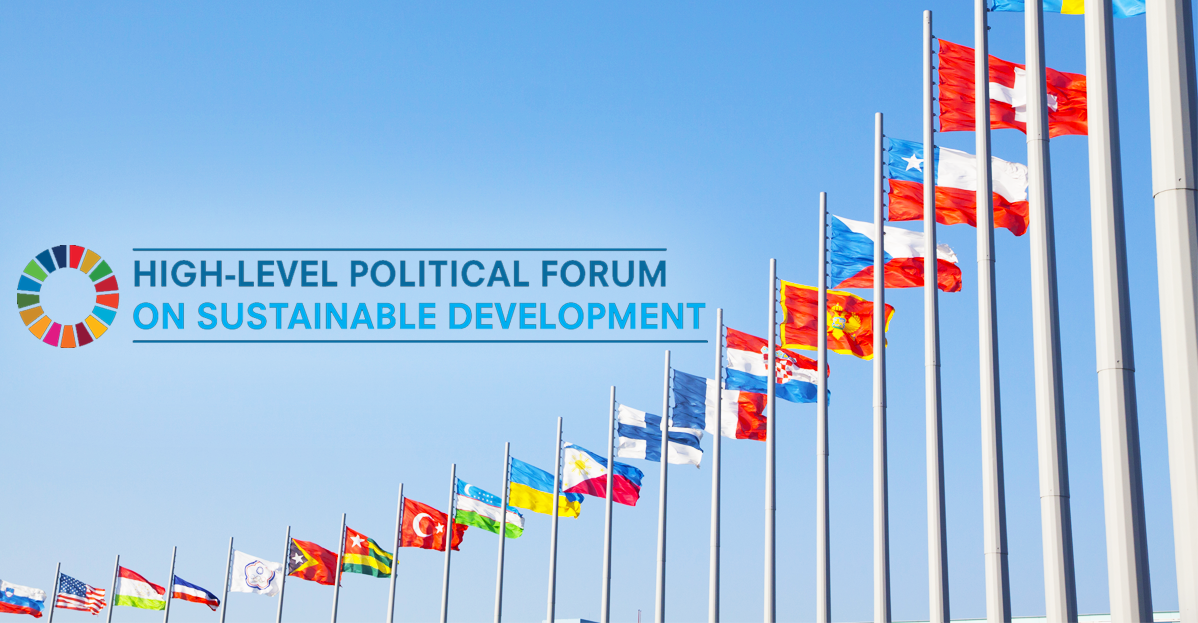Accelerating the Transformation Towards Sustainable Development
By Peter Paul van de Wijs, GRI Chief External Affairs Officer

How can the private sector support countries to deliver on their 2030 Agenda commitments, as set out in the Sustainable Development Goals?
As nations gather in New York this week for the annual UN High-Level Political Forum (HLPF) on Sustainable Development, this is a question that GRI is asking.
GRI joins representatives from governments, businesses and civil society at HLPF 2019. In total, 47 countries are presenting their voluntary national reviews (VNRs). These country-driven evaluations look at progress against the 2030 Agenda, reflecting on experiences, successes, challenges and lessons learned.
This year’s focus is on reviewing six of the SDGs, which are reflected in the majority of the VNRs. Almost half (45%) of the countries have assessed against all the SDGs, demonstrating the diversity of the goals and the urgent action needed to implement them.
A number of countries describe private sector actions and the role of reporting in driving implementation of the SDGs. These countries include Bosnia and Herzegovina, Chad, Turkey, Croatia, Iceland, Lichtenstein, the Philippines and Israel.
The latter two countries specifically assess the legal and institutional framework needed to enhance corporate transparency. The Philippines Securities and Exchange Commission has outlined new capital market regulations, while Israel has supported corporate reporting using the GRI Standards.
Initiatives such as these, that recognize the important contribution of businesses in measuring SDGs progress, are welcome. However, it’s notable that, following an upward trend in recent years for the number of countries consulting the private sector in the review process, 2019 has seen a decline.
There’s also been a fall in countries referring to sustainability reporting in their VNRs, from 27 last year to 18 in 2019. This can, in part, be explained by the fact that SDG 12 — which includes the target on assessing corporate reporting practices — was reviewed during the 2018 HLPF.
Nine countries do, however, provide information on SDG target 12.6. This target seeks to ‘encourage companies, especially large and transnational companies, to adopt sustainable practices and integrate sustainability into their reporting cycles’.
While the fall in countries setting out the importance of engaging the private sector and carrying out reporting is a concern, a majority of countries do acknowledge that businesses are a crucial implementer of the 2030 Agenda. And most of the VNRs list the private sector as a key stakeholder.
Nevertheless, the specific role of business is less frequently articulated. It’s clear that we need countries to do more to set out and assess how they can fully engage private companies in making progress against the SDGs.
Many of the VNRs also highlight the need for mobilizing finance and investment towards implementation of the goals. Mechanisms can vary and includes official development aid, aid-for-trade arrangements, foreign direct investment, and public-private partnerships. What this emphasizes is that, where funding gaps exist, greater private sector participation could be an important way forward.
Right around the world, companies of all sizes and across all sectors can have a valuable part to play in contributing towards the 2030 Agenda. As HLPF 2019 continues, GRI will be pressing for countries to explicitly identify and address the contribution of businesses, recognizing that the private sector can help accelerate the transformation towards global sustainable development.
- This article originally published on the GRI Medium blog

